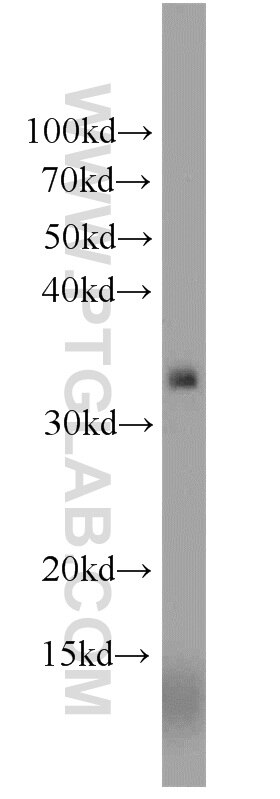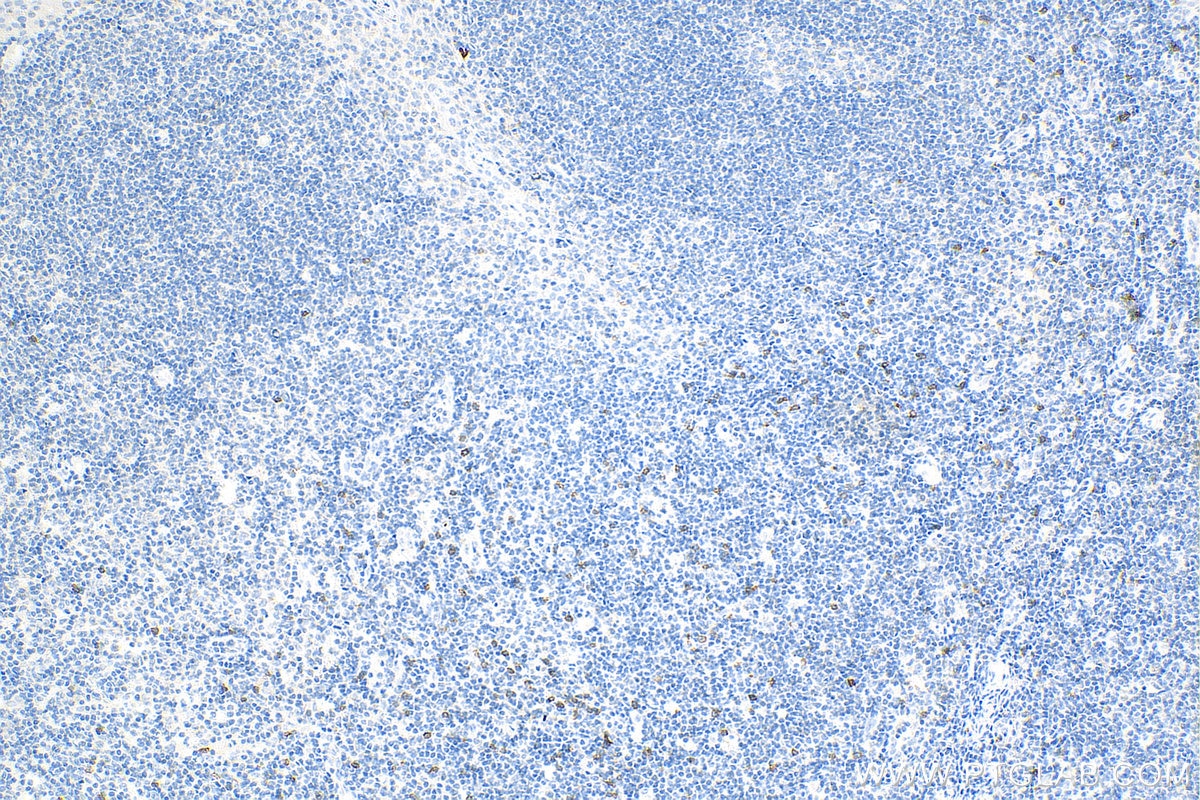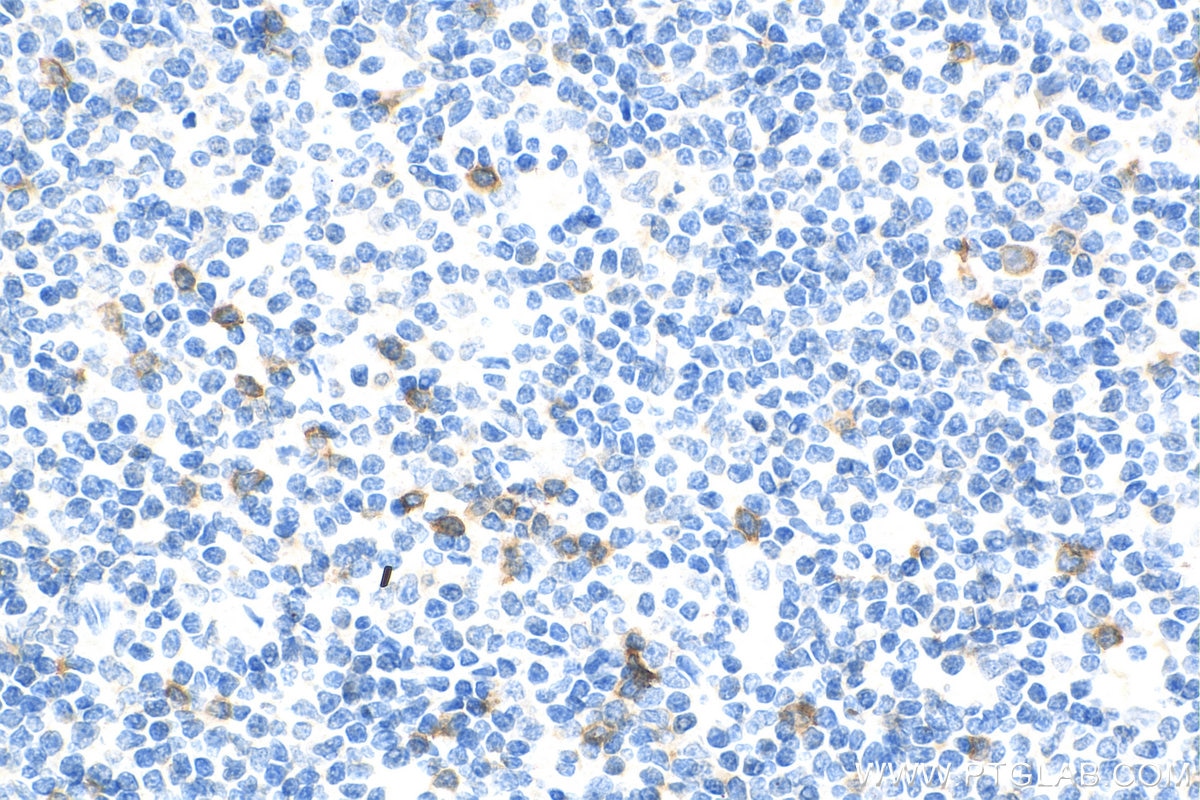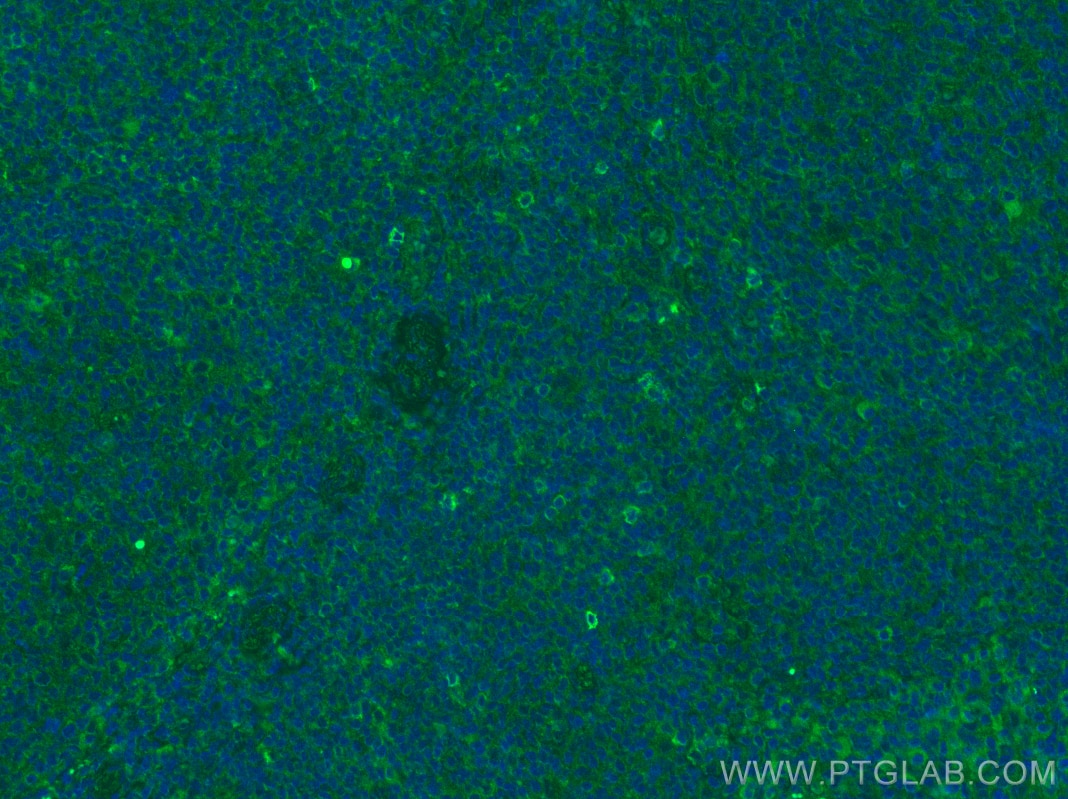Tested Applications
| Positive WB detected in | human liver tissue |
| Positive IHC detected in | human tonsillitis tissue Note: suggested antigen retrieval with TE buffer pH 9.0; (*) Alternatively, antigen retrieval may be performed with citrate buffer pH 6.0 |
| Positive IF-P detected in | human tonsillitis tissue |
Recommended dilution
| Application | Dilution |
|---|---|
| Western Blot (WB) | WB : 1:500-1:1000 |
| Immunohistochemistry (IHC) | IHC : 1:500-1:2000 |
| Immunofluorescence (IF)-P | IF-P : 1:50-1:500 |
| It is recommended that this reagent should be titrated in each testing system to obtain optimal results. | |
| Sample-dependent, Check data in validation data gallery. | |
Product Information
10935-1-AP targets NKG2A in WB, IHC, IF-P, ELISA applications and shows reactivity with human samples.
| Tested Reactivity | human |
| Host / Isotype | Rabbit / IgG |
| Class | Polyclonal |
| Type | Antibody |
| Immunogen |
CatNo: Ag1376 Product name: Recombinant human KLRC1 protein Source: e coli.-derived, PGEX-4T Tag: GST Domain: 1-215 aa of BC012550 Sequence: MDNQGVIYSDLNLPPNPKRQQRKPKGNKSSILATEQEITYAELNLQKASQDFQGNDKTYHCKDLPSAPEKLIVGILGIICLILMASVVTIVVIPSRHCGHCPEEWITYSNSCYYIGKERRTWEESLLACTSKNSSLLSIDNEEEMKFLSIISPSSWIGVFRNSSHHPWVTMNGLAFKHEIKDSDNAELNCAVLQVNRLKSAQCGSSIIYHCKHKL Predict reactive species |
| Full Name | killer cell lectin-like receptor subfamily C, member 1 |
| Calculated Molecular Weight | 26 kDa |
| Observed Molecular Weight | 33 kDa |
| GenBank Accession Number | BC012550 |
| Gene Symbol | NKG2A |
| Gene ID (NCBI) | 3821 |
| RRID | AB_2249683 |
| Conjugate | Unconjugated |
| Form | Liquid |
| Purification Method | Antigen affinity purification |
| UNIPROT ID | P26715 |
| Storage Buffer | PBS with 0.02% sodium azide and 50% glycerol, pH 7.3. |
| Storage Conditions | Store at -20°C. Stable for one year after shipment. Aliquoting is unnecessary for -20oC storage. 20ul sizes contain 0.1% BSA. |
Background Information
KLRC1, also known as NKG2A (NKG2) and CD159A, is a single-pass type II membrane protein with extracellular C-type lectin domain. It belongs to the natural killer cell lectin-like receptor family, which is a group of transmembrane proteins preferentially expressed in NK cells. KLRC1 can form a heterodimer with CD94. The NKG2A/CD94 complex is an inhibitory receptor that recognizes HLA-E and is expressed by NK cells and a subset of T cells.
Protocols
| Product Specific Protocols | |
|---|---|
| IF protocol for NKG2A antibody 10935-1-AP | Download protocol |
| IHC protocol for NKG2A antibody 10935-1-AP | Download protocol |
| WB protocol for NKG2A antibody 10935-1-AP | Download protocol |
| Standard Protocols | |
|---|---|
| Click here to view our Standard Protocols |
Publications
| Species | Application | Title |
|---|---|---|
PLoS One Flow Cytometric Immunophenotyping Is Sensitive for the Early Diagnosis of De Novo Aggressive Natural Killer Cell Leukemia (ANKL): A Multicenter Retrospective Analysis. | ||










